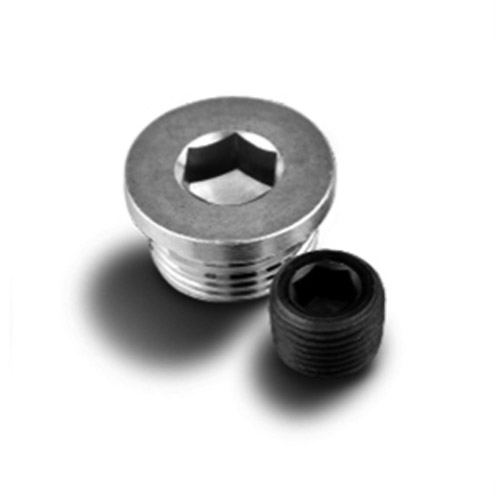

Comparing Self-Tapping Screws and Self-Drilling Screws for Efficient Fastening Solutions
Nov . 09, 2024 04:46 Back to list
Comparing Self-Tapping Screws and Self-Drilling Screws for Efficient Fastening Solutions
Understanding Self-Tapping Screws and Self-Drilling Screws A Comprehensive Overview
When it comes to fastening materials, screws play a pivotal role in construction, manufacturing, and DIY projects. Among the myriad types of screws available, self-tapping screws and self-drilling screws stand out due to their unique features and applications. In this article, we will delve into the characteristics, uses, and advantages of these two types of screws, exploring how they contribute to efficient fastening solutions.
What are Self-Tapping Screws?
Self-tapping screws are specially designed screws that can create their own hole in the material they are driven into. This feature eliminates the need for pre-drilled pilot holes, making installation significantly quicker and easier. Self-tapping screws have a sharp, pointed tip that allows them to penetrate various materials, such as metal, wood, and plastic.
The threads on self-tapping screws are designed to cut into the material, forming a tight fit as the screw is driven in. There are different types of self-tapping screws, including those with coarse and fine threads, which cater to different applications. Coarse-threaded screws are ideal for softer materials like wood, whereas fine-threaded screws work better with harder materials like metal.
Applications of Self-Tapping Screws
Self-tapping screws are widely used in various industries, including construction, automotive, and electronics. They are particularly useful in situations where quick assembly is needed and where drilling pilot holes would be time-consuming. Common applications include
1. Furniture Assembly Many ready-to-assemble furniture kits utilize self-tapping screws for easy and quick assembly. 2. Metal Fabrication In industries such as automotive manufacturing, self-tapping screws are essential for joining metal components without the need for welding. 3. Electrical Applications Self-tapping screws are commonly used to secure electrical fixtures and components due to their ease of use and reliability.
What are Self-Drilling Screws?
Self-drilling screws, often referred to as self-drillers, take the concept of self-tapping screws a step further. These screws feature a unique drill-like point that allows them not only to tap their own hole but also to drill through the material. This eliminates the need for pilot holes and increases efficiency in fastening operations.
self tapping screw and self drilling screw

Self-drilling screws are commonly made from hardened steel, which enhances their durability and makes them suitable for heavy-duty applications. They are primarily used in materials such as steel, aluminum, and other metals, making them indispensable in sectors where structural integrity is critical.
Applications of Self-Drilling Screws
Self-drilling screws are preferred in situations requiring secure fastening in tough materials. Here are some common applications
1. Roofing Contractors often use self-drilling screws to attach roofing sheets to metal purlins. Their ability to penetrate metal easily ensures a durable seal against the elements. 2. Building Structures In construction, self-drilling screws are used for joining steel girders and frame assemblies, maintaining strong structural integrity. 3. HVAC Systems Self-drilling screws are frequently employed in the installation of ductwork, allowing for quick and reliable fastening.
Advantages of Self-Tapping and Self-Drilling Screws
Both self-tapping and self-drilling screws offer several advantages
- Time Efficiency Their ability to eliminate the need for pre-drilled holes significantly reduces installation time. - Cost-effectiveness Using these screws can lead to savings in both labor costs and tools, as fewer resources are required for assembly. - Strong, Reliable Joints Both types of screws provide secure and durable connections, ensuring the longevity of the assembly.
Conclusion
Self-tapping and self-drilling screws are essential tools in various industries, providing efficient and reliable fastening solutions. By understanding their features and appropriate applications, professionals and DIY enthusiasts can select the right screws for their projects, ensuring optimal performance and structural integrity. Whether you're working on furniture, construction, or automotive applications, knowledge of these screws will undoubtedly enhance your fastening capabilities.
Latest news
-
Best Self Tapping Screws for Drywall - Fast & Secure Installation
NewsJul.31,2025
-
High-Strength Hot Dip Galvanized Bolts-Hebei Longze|Corrosion Resistance&Customization
NewsJul.31,2025
-
Hot Dip Galvanized Bolts-Hebei Longze Metal Products|Corrosion Resistance&High Strength
NewsJul.31,2025
-
Hot Dip Galvanized Bolts-About LongZe|High Strength, Corrosion Resistance
NewsJul.30,2025
-
High-Strength Hot Dip Galvanized Bolts - Hebei Longze | Corrosion Resistance, Customization
NewsJul.30,2025
-
Hot Dip Galvanized Bolts-Hebei Longze|Corrosion Resistance&High Strength
NewsJul.30,2025

